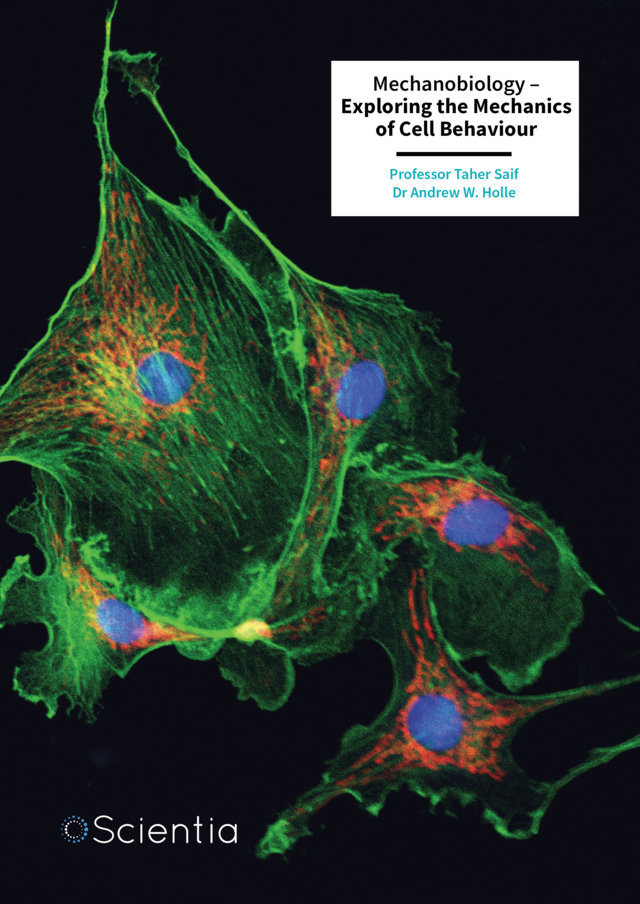Across the varied and diverse landscapes that make up the Nigerian countryside, animals, both wild and domesticated, are more than merely an agricultural commodity or source of food; they are an integral part of local cultures, natural biodiversity, and represent an ecological treasure trove. Local wildlife and agricultural livestock help to sustain the livelihoods of millions. However, beyond this, Nigerian animals hold secrets within their genetic code that could, when revealed, help to prevent diseases, aid conservation efforts and enhance agricultural productivity. Leading the efforts to uncover useful and interesting genetic phenomena in these animals is Dr. Adeniyi Charles Adeola of the Chinese Academy of Sciences, who explores the genetic blueprints of Nigerian animals in his pioneering research. From investigating the population dynamics of grasscutters to tackling the genetic roots of prion diseases, Dr. Adeniyi Charles Adeola’s work illuminates both challenges and solutions that impact food security, agriculture, and biodiversity in Nigeria, and far beyond. More
The grasscutter (Thryonomys swinderianus, also known as the Greater Cane Rat), a robust rodent found throughout sub-Saharan Africa, is both an agricultural nuisance and a culinary delight. Renowned for its tender, flavorful meat, it is a vital protein source for rural communities and a candidate for domestication as micro-livestock. However, little was known about the species’ genetic diversity or its potential for domestication until Dr. Adeniyi Charles Adeola and colleagues undertook a comprehensive study.
Using mitochondrial DNA, a specialized form of genetic material passed exclusively from mothers to offspring, the researchers studied populations of grasscutters in Nigeria, Ghana, Cameroon, and Benin. This DNA provides a molecular archive of an organism’s evolutionary history and helps reveal the genetic wealth and diversity of populations. By examining regions such as the D-loop, which mutates rapidly, and cytochrome b, essential for energy production, the team measured haplotype diversity, a marker of genetic variation within populations.
Their findings were striking. Grasscutters in Ghana displayed the highest genetic variation (haplotype diversity of 0.921), indicating a robust and adaptable population. In contrast, those in Benin exhibited lower diversity (0.571), suggesting a more uniform genetic pool. In Nigeria, haplotype diversity varied geographically, from 0.659 in Cross River State to 0.837 in Ondo State, reflecting ecological and geographic influences on gene flow.
Despite the intense hunting of grasscutters for meat and pest control, the researchers found no evidence of population bottlenecks, events where a sharp population decline reduces genetic variation. This resilience may stem from the species’ adaptability to diverse habitats, from farmlands to urban edges. Evolutionary analyses revealed that South African grasscutter populations diverged from West African ones around six million years ago, likely due to climatic and environmental shifts.
Dr. Adeniyi Charles Adeola’s findings have practical implications. Understanding grasscutter genetics can guide breeding programs to optimize traits such as disease resistance, fertility, and meat yield. Sustainable hunting practices and conservation strategies informed by this research can also help protect wild populations while enhancing their role as a reliable food source.
While grasscutters thrive in the wild, livestock across Nigeria face an insidious threat: prion diseases. These fatal brain disorders, including mad cow disease in cattle and scrapie disease in sheep, arise from misfolded prion proteins. Unlike traditional pathogens such as bacteria or viruses, prions are abnormal versions of a normal protein (PrPC) encoded by the PRNP gene. When these proteins misfold into their infectious form (PrPSc), they trigger a chain reaction, converting healthy proteins into harmful ones. Strikingly, these proteins are highly resilient, and can even be transmitted to other animals if they encounter them in the environment, causing the same protein chain reaction and resulting illness.
Dr. Adeniyi Charles Adeola and colleagues turned their attention to understanding the genetic underpinnings of prion diseases in five Nigerian livestock species: camels, dogs, horses, goats, and sheep. They analyzed 994 PRNP genetic sequences, combining newly collected samples with publicly available data, to identify single nucleotide polymorphisms (or SNPs for short), which are tiny genetic variations that can influence susceptibility to prion diseases.
The study uncovered striking differences in genetic diversity among species. Sheep had the most unique haplotypes (54), indicating a broad genetic variation, while camels had the fewest (7), suggesting a more uniform genetic makeup. Five non-synonymous SNPs, mutations that alter the structure of the prion protein, were shared across all species. Computational tools such as PolyPhen-2 predicted these mutations to be benign, meaning they are unlikely to compromise protein function.
Intriguingly, species-specific mutations provided deeper insights. Nigerian dogs exhibited unique mutations such as G34C, which could influence prion disease resistance, while horses carried mutations such as G503A, linked to the stability of prion proteins. Sheep and goats shared mutations such as C50T, reflecting their evolutionary closeness. Dr. Adeniyi Charles Adeola’s research lays the foundation for breeding programs that can enhance resistance to prion diseases, improving livestock health and safeguarding food supplies.
Sheep, a cornerstone of rural Nigerian agriculture, face a unique prion disease: scrapie. This fatal disorder affects the nervous system, leading to behavioral changes, tremors, and eventual death. Its spread is influenced by genetic factors, particularly variations in the PRNP gene. Certain mutations increase resistance, while others make sheep more vulnerable.
Dr. Adeniyi Charles Adeola and colleagues have conducted the first comprehensive study of PRNP polymorphisms in Nigerian sheep. They collected and analyzed blood samples from 126 sheep across four northern states, Kaduna, Katsina, Sokoto, and Taraba. Their sequencing efforts revealed 19 SNPs, including 14 non-synonymous mutations that could alter the prion protein. One mutation, T718C, was novel and previously unreported. Codon 154 (R154H) emerged as particularly concerning, as it may increase susceptibility to scrapie, while codon 171 (H171Q) appeared to be benign.
Further analysis identified eight major haplotypes, or combinations of genetic mutations. The most common haplotype occurred in 58% of the sampled sheep. Some haplotypes closely resembled those found in European breeds resistant to scrapie, suggesting that selective breeding could enhance resilience in Nigerian sheep.
Dr. Adeniyi Charles Adeola’s work highlights the genetic complexity of scrapie resistance and offers a roadmap for breeding programs to develop hardier sheep. These efforts are crucial for protecting smallholder farmers, who rely on sheep for income, food, and cultural practices.
Dr. Adeniyi Charles Adeola’s research demonstrates the transformative potential of genetics to address real-world challenges. Whether studying the adaptability of grasscutters, uncovering genetic clues to prion disease resistance, or tackling scrapie in sheep, his work bridges science and practical solutions. These studies not only deepen our understanding of Nigerian animals but also provide tools to enhance food security, conservation, and livestock health, both in Nigeria and beyond.
As the global population grows and climate challenges intensify, integrating genetic insights into agriculture and conservation becomes more critical. Dr. Adeniyi Charles Adeola’s work offers hope for a future where science supports sustainability, balancing the needs of people, animals, and ecosystems.







